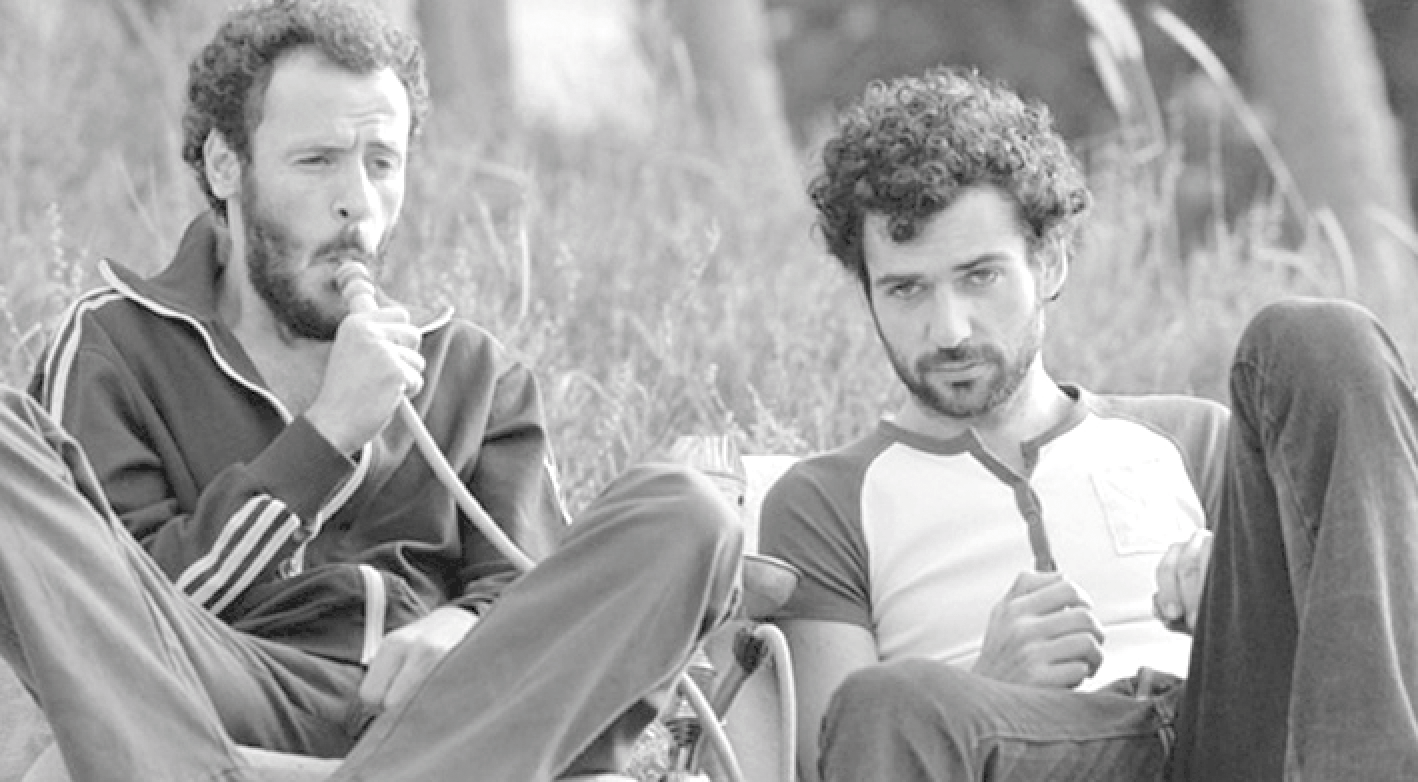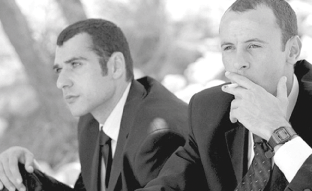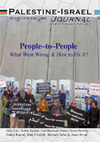When we are made aware of what has happened, the suicide-bomber does not exist anymore - only his or her name is announced as a reminder of what has been a human being who was willing to sacrifice him or herself. And sometimes there is the pre-suicide recording full of fanatic determination and religius language. What we see on the screen as we watch the scene of a suicide- bombing is the gradually unfolding narrative of how many victims this suicide- bombing has caused - never the actual preparations for it nor the arrival to the scene.
What the Director Has Done
What director Hany Abu-Assad shows in his successful and well made film Paradise Now is thus exactly what is usually not within the reach of representation or reproduction, the negative in the photographic sense of the word, of the documentations of suicide- bombings on both sides: the preparations up until a few seconds before the bomb explodes. In the film we significantly never see the explosion itself and cannot even be sure that it did indeed take place.

That is one aspect of "Paradise in the film" - we are spared the sights and sounds of the suffering caused by the violence. But we do have in our retinas and ears many scenes and soundscapes of the afterwards. There is thus a gap between the close-up on the suicide- bomber with which the film ends, and our "screen-memories" - literally consisting of pictures from the screen - of suicide- bombings. And it is impossible, at least for an Israeli spectator, not to bridge this gap over and over again as the film evolves.
In his film, Abu-Assad has created a fictional narrative closely following two Palestinian childhood friends - Said, played by Kais Nashef, and Khaled, played by Ali Suliman - residents of Nablus who have been recruited for a suicide strike in Tel Aviv. The film focuses on their last days together: their work at a garage, their farewell from their respective families and their crossing of the barbed wire of the border between the occupied territories of Palestine and Israel, being brought by car to Tel Aviv. They also get involved with a young woman called Suha - played by Lubna Azabal - who has just returned to Palestine from an apparently long period of exile.
The title of the film also ironically echoes the Israeli peace movement - "Peace Now" - instead inviting us to a glimpse of the supposed Palestinian route to paradise. The failure of the one "Now" seems to feed the perpetuation of the other.
Paradise serves in general as a concept for summing up human dreams of perfection, situated either at the very beginning of Creation, as in the Book of Genesis, or in an individual's afterlife if she or he deserves it according to a given code, as is preached by all three monotheistic religions of the Book. Paradise is thus long ago or in the hereafter. There is, accordingly, no greater contrast than between the two terms of the title "Paradise" and "Now." From the title onwards the film thus rolls out its critical and ironical position to the idea of attaining Paradise - now. One aspect of the critique is on a pragmatic level and points at the huge gap between the anxiety and pressure-ridden existence of Palestinians under occupation and anything that resembles even an earthly variant of paradise. The westernized and independent Suha embodies another, individualistic angle of the pragmatic stance to local politics, on the one hand, and, alternatively, as a relatively liberated woman, she signals other possibilities of attaining Eden on earth.

The other aspect of the critique is attained by the openly non-idealized characterization of the local leaders who recruit the youngsters to the suicide act.
Countering Stereotypical Expectations
Two details in the plot interestingly, as well as problematically, counter the stereotypical expectations that we have about suicide- bombers on the basis of the information that we are used to with regard to the phenomenon. First of all the motivation of the main character, Khaled who presumably carries out the suicide- bombing after the end of the film, is not based on what most subjective testimonies of the perpetrators seem to communicate, the wish to avenge a close relative's or friend's death caused by Israeli soldiers, or, in some cases, by Israeli civilians. Here the motivation grows out of the need to erase the shame caused by Khaled's father's having been a collaborator with the occupation power. The other departure from the suicide- bomb acts, as they are experienced by Israelis, is the bomber's avoiding stepping into a bus in which there are many civilians and preferring as a target a bus filled with soldiers. It is hard to quantify how much and for whom exactly these deviations from widely accepted notions weaken the realistic effect of the film and, by that, its power to bring forward its complex message. What seems clear though is that in this film, more than usually, the meaning is in the eyes of the beholder ,and a Palestinian view may reveal quite different reflections from ours.

